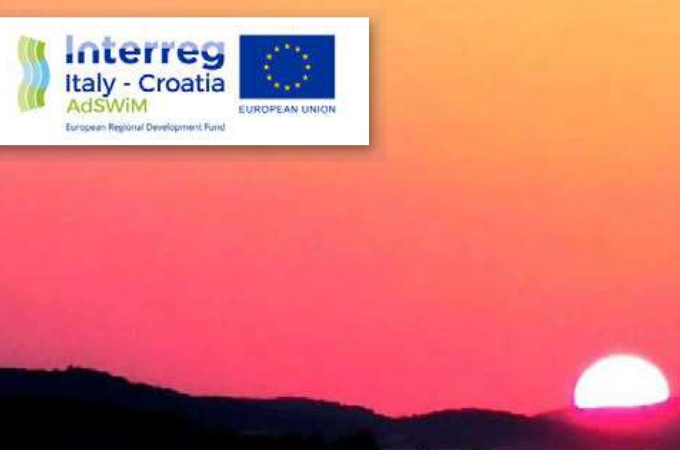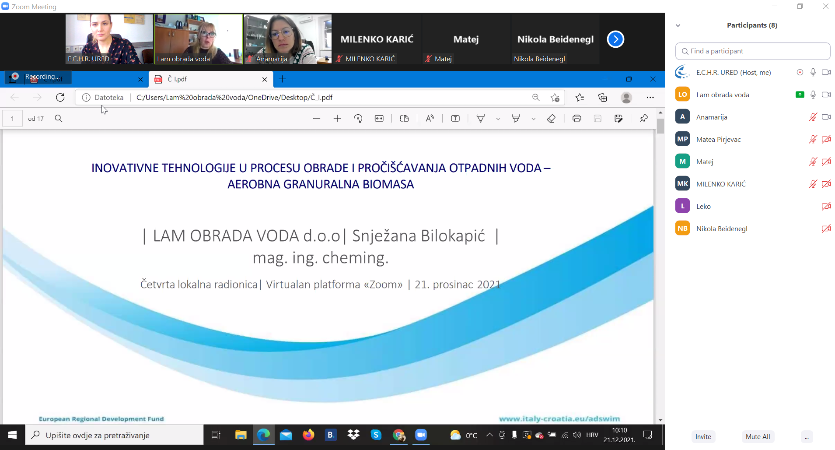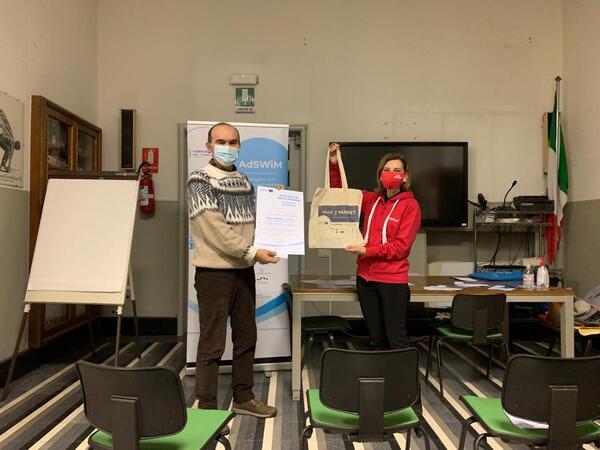Our AdSWiM project that focuses on water conservation and the most efficient and optimized management of urban wastewater treatment and treatment plants involving the Adriatic, had planned a series of initiatives with schools involving Italian regions Marche, Abruzzo and Friuli Venezia Giulia in order to remember the importance of this day. The events and school laboratories dedicated to the water journey and to the depuration water process, as well as the observation of the water under the microscope lens and the insights on the conscious use of the water resource that have been approved by PROESOF, will be reprogrammed in future, as soon as possible, but now, more than ever, it is important to stay at home and comply with the current regulations. #stayhome #staysafe

Our operators have performed a series of localized sampling at the level of depuration plants that are part of the Interreg Italy - Croatia project and along the waterline of the waste water systems towards the point of discharge into the sea water and into the sea and they continue with the monitoring of numerous chemical-physical parameters (conventional or innovative) and the mapping of the presence of bacteria (faecal and emerging) responsible for the quality of the water of the Adriatic Sea. The surveys will continue in the coming months and the results of the research are expected at the end of the project between December 2020 and March 2021.
Some additional information:

On December 16, 2019, the European Commission published the results of the evaluation of the Urban Waste Water Treatment Directive applied in 1991 and its modification in 1998, to verify whether the existing standards have achieved their objectives and whether they continue to serve their purpose. The assessment confirmed the effectiveness of the directive and the reduction of organic matter and other pollution in waste water treated at European level. However, he stressed that the implementation of the directive remains essential to achieve the objectives of other EU legislation, such as the Water Framework Directive and the Marine Strategy Framework Directive.
The European Environment Agency (EEA), which constantly monitors anthropic activities on the ecosystems of European coastal areas and seas, presents on their website tools, analyzes and reports on the significant changes recorded in the past sixty years in European seas which are of they have become more crowded places, driven by a combination of technological advances and society's growing demand for food, energy and other resources. The seas cover 71% of the earth's surface and guarantee natural balance and survival for all of us. The vast majority of oxygen comes from ocean waters, as well as many of the products we eat and from which we extract elements for life-saving medicines. Not only that, the large expanses of water have fundamental effects on weather conditions and are the basis of the climate of the Italian peninsula and of the rest of the world.
To minimize the effects of all anthropic activities on the marine ecosystem is a common and primary objective of all. The United Nations 2030 Agenda for Sustainable Development has identified the conservation and sustainable use of the oceans as one of the 17 sustainable development goals (SDG 14) and as part of a highly interconnected agenda. For the first time, the conservation and sustainable use of the oceans are being addressed with the other most pressing challenges of sustainability in a global political agenda, divided into different objectives of sustainable development.
To help achieve the 2030 Agenda, in particular Objective 6 and other aspects related to water, a publication by Water Europe was developed in June in 2019, designed and developed jointly with the World Evaluation Program of UNESCO waters (WWAP) to establish the role that the European Union, the European Commission and the players in the European Water Resources Sector have had and should continue to play.





